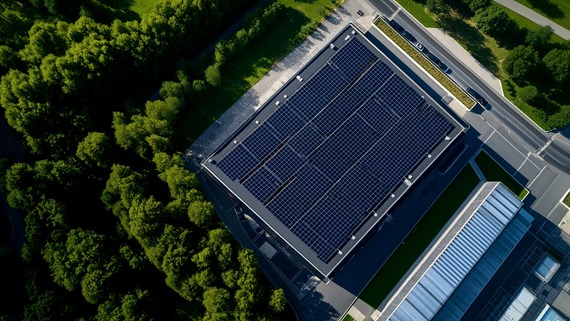With great power comes great responsibility: what landowners should know about data centres
Insight

Data centres: tech mega-sheds full of servers and cables, where the world’s funniest cat videos are stored, are having their moment in the world of property development and investment. But before you start picturing your land being snapped up by tech giants, here are some points to consider:
Power
Data centres need serious power – the kind that is plentiful and uninterrupted. Without access to the required supply, potentially more than 90 Megavolt-Amperes (which, for context, is three times the supply to Gatwick Airport), it will be difficult to get going.
If you don’t already have a connection agreement with National Grid, you will need to transact with someone who does; National Grid has effectively paused taking new orders. Your partner’s place in the “queue” and the amount of their contracted supply will determine the value of such agreement. The cost of acquiring such a position can be considerable, in addition to the expenses associated with the connection itself, reflecting both the infrastructure requirements and the high demand for energy in the sector.
Access to fibre optic cabling
Data centres depend on fast, reliable fibre optic cabling which is connected and in use, or “lit”. Your land therefore needs to be near existing fibre infrastructure and, ideally, it should be able to accommodate the future growth of the data centre. This isn’t a “nice-to-have”, it’s non-negotiable.
Proximity to hazards
Safety is paramount when it comes to data centres, which cannot risk operating near potential dangers like chemical factories, or flood zones. A hazardous site could increase operational risks, or raise insurance premiums beyond what is economically viable. Check first that your land is a safe bet.
Logistics and heavy lifting
Moving equipment into a data centre site involves heavy machinery, from servers to cooling systems, and you need to ensure your land can accommodate the logistics: wide access roads for large vehicles, sufficient space for construction and future expansion, and an overall flat, usable site. Without this, there could be substantial additional costs and delays.
Potential tenants: the giants dominate
The tenant pool for data centres, whilst being relatively small, is dominated by the major players like Amazon, Microsoft, and Google. From scalability and security to the most cutting-edge cooling systems, these companies will expect the world. As a landowner, expect their lease terms to be complex, and the tenant’s expectations (particularly around energy use, sustainability, and tech infrastructure) high.
Lease terms: not your standard commercial lease
The lease template for a data centre is different from a standard commercial lease, where the landlord will try and put as much cost onto the tenant as possible. With data centres, landlords are often responsible for some bulky operational costs, particularly power and utilities. While tenants may pay for their own consumption, infrastructure costs (like the provision of electricity, cooling, and high-tech security systems) will often be borne by the landlord. This can change the financial dynamics significantly, and landlords should be prepared for significant upfront capital expenditure, as well as ongoing maintenance obligations.
Energy regulations: the green impact
Data centres are energy guzzlers. With the increasing emphasis on sustainability and climate change, governments may introduce new laws and regulations which restrict energy use or impose higher standards on carbon emissions, which could create added cost for the landlord and have a significant impact on your investment. It ultimately depends on the government of the day.
Planning use: Just a storage facility?
In terms of planning, there is a lack of certainty given that a data centre could fall under a B8 use class (storage or distribution) or (perhaps less likely) be classified as sui generis, depending on the specific characteristics and operational functions of the facility. While it is generally considered that data centres fall within the B8 use class, this classification is not guaranteed - local authorities may take a different view based on the unique aspects of the proposed development. This uncertainty is likely to drive up planning costs and heighten the need for absolute clarity, to instil greater confidence in investors and developers.
The Government appears to be making progress on providing clarity, however, and classed data centres as “Critical National Infrastructure” in September 2024. The 2024 update to the National Planning Policy Framework requires planning policy to “pay particular regard to facilitating development to meet the needs of a modern economy, including by identifying suitable locations for uses such as data centres”, and so future reforms to planning use classes may clarify the position.
Conclusion
Selling or leasing land for a data centre is not like any other commercial use; you need to make sure your land ticks all the right boxes, and even then it is a costly business to both build and operate, even one which is tenanted. That said, the potential revenue can far exceed other uses.
If you have land that might be suitable, make sure your plot is up to scratch, your power supply is plentiful, and find a partner with deep pockets. Get these elements right, and you could find yourself with a supremely valuable asset and revenue stream.
This publication is a general summary of the law. It should not replace legal advice tailored to your specific circumstances.
© Farrer & Co LLP, April 2025






